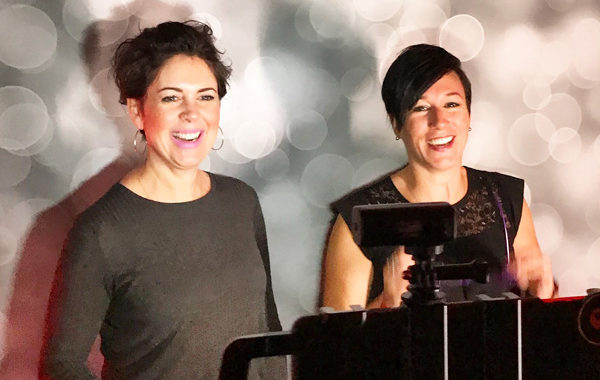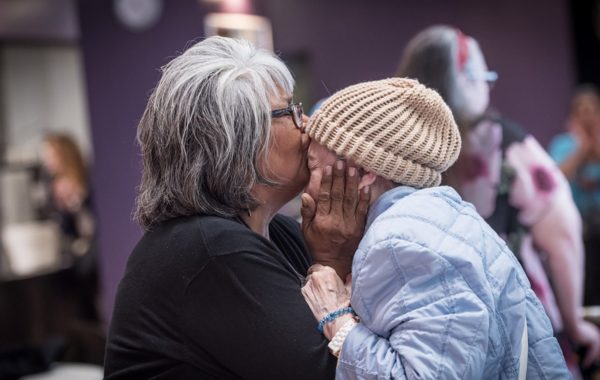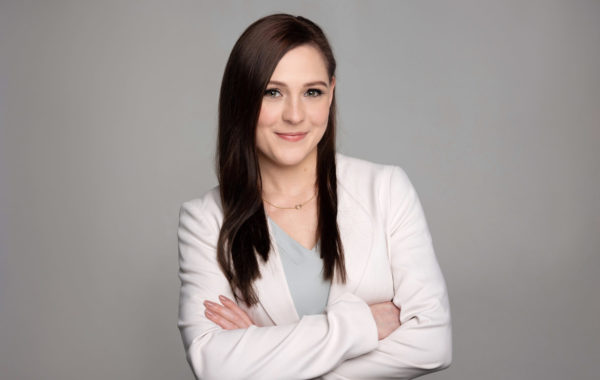In our Buzzkill series we shine a light on some common industry buzzwords, and look at how we can reclaim, redefine, and reinvigorate these words together as an industry. See previous Buzzkill posts here and here.
Authenticity is a special kind of buzzword. Authenticity relates closely to ideas of trust, and to trust is by nature a pretty intimate and personal thing, even in business settings. (Disclaimer: Maybe reread that last sentence carefully; this is not us talking about getting intimate in business settings. Don’t be that person.) Trust is hard-earned, and generally pretty easily lost. When you’re asking someone to trust you, whether it’s your dog or your partner or your colleague, it’s best to take that seriously. That’s why when it comes to this buzzword, we’re making the radical suggestion that you might want to consider never saying it. Here’s why.

Authenticity isn’t something you say. It’s something you are.
If you have to actually say you’re authentic or that authenticity is part of who you are, it often takes something away from the actual authenticity of your actions or your voice. Think of it this way: if you run around saying, “I’m smart! I’m smart!” in an attempt to impress others with your brain power, it’s going to be a lot less effective than calmly demonstrating your intelligence through the things you do and say. The solutions you put forward, the ideas you bring to the table, and the insight you contribute will speak a lot more loudly (and more believably). The same goes for authenticity. No one wants to hear you say you’re being authentic – they just want you to be authentic.
So stop worrying about how or when you can use this buzzword, and start thinking about how you can be more authentic in your day-to-day interactions, and approach to your work. With that in mind, here are some ways to think about authenticity moving forward.
In an industry where collaboration is everything, trust is indispensable.
We will say it until we’re blue in the face (and we have), partnerships and meaningful collaboration are completely irreplaceable in this industry if you want to do your best work and continue to be creative, innovative, and successful. True collaboration is at best when there’s mutual trust. Trust allows creativity to flow and removes the need for second-guessing, covering up, and side-stepping. Instead of attempting to form surface-level “partnerships” with every possible collaborator, focus on the most meaningful relationships that are a good fit for everyone, and really foster those.
If authenticity is a “be” and not a “say” – how do we be authentic?
Great question. We really like the seven traits of authentic people in this Psychology Today article, so let’s look briefly at those traits, and how they can relate back to our industry.
- Have realistic perceptions of reality. Being grounded in reality is a pretty solid way to be real, right? In the context of events, we like to think of this as having the ability to dream big, but always while remaining honest and open about what’s realistic within the budget, the space, or other factors.
- Are accepting of themselves and of other people. Events are a team effort! Show this trait by really seeing and accepting the individual strengths and weaknesses of your team and your collaborators. Once you do that, you can see how to use strengths to support weaknesses.
- Are thoughtful. Taking the time to thoughtfully consider all possibilities, think through different scenarios, and consider all possible outcomes is a great way to build trust.
- Have a non-hostile sense of humour. A sense of humour can make all the difference when we’re tired and under pressure. While we can appreciate a good-natured zinger as much as anyone, it’s important not to get mean-spirited. Making someone else the butt of a cruel joke says more about you than it does about them… so just don’t.
- Are able to express their emotions freely and clearly. This is so important to the success of an event. Every collaborator should have the ability to speak up and voice thoughts, opinions, questions, and suggestions for the good of the end result.
- Are open to learning from their mistakes. First, accept that in events as in life, there will be mistakes. Learn as much as you can from them, then set them aside and move on.
- Understand their motivations. If your own personal success or even your company’s success is your main motivation, you might not be everyone’s favourite person to work with. Let the project as a whole be your motivation, and care just as much about your client’s, your collaborators’, and the event’s ultimate success as you do your own.

“Being in life is what makes content interesting, not life for the sake of creating content.”
Authenticity is something we talk about so much right now largely due to the online life we’re all living to at least some extent. This situation has made everyone hyper-aware of what’s real, and what might be largely curated or put on. We love the quote above, pulled from this interview with Jasmine Takanikos, creator of the BrandHuman, because it reminds us that it’s real life that matters, and that our intentions have to be authentic before anything else can be. In the end, why are we doing what we do? If we love what we do, and are deeply invested in not just our role, but the end result; if we actually do care about the health, safety, wellbeing, fulfillment, and enjoyment of the people around us, then chances are, our actions and our words will be coming from a place of authenticity. And if that’s the case, it will shine through… which means we’ll never have to say it.
Got some authentic thoughts of your own? You know we want to hear it. Hit us up here, here, or here.




